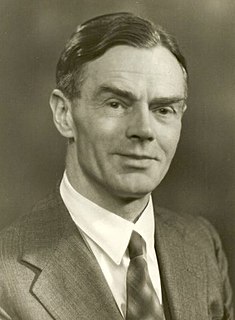A Quote by Christopher Landsea
I personally cannot in good faith continue to contribute to a process [IPCC process] that I view as both being motivated by pre-conceived agendas and being scientifically unsound.
Quote Topics
Related Quotes
You might want to check with the IPCC Bureau. I've been told that IPCC is above national FOI Acts. One way to cover yourself and all those working in AR5 [the upcoming IPCC Fifth Assessment Report] would be to delete all e-mails at the end of the process. Hard to do, as not everybody will remember it.
The creative process is just a process and you can't really separate it from life. Growing your hair is a creative process. Your body is creating hair. Being alive is a creative process. Whether it's growing something in the garden or growing a song, the material accumulates. It's the process of being alive; it's the passage of time. Things change.
The best defence [for a democracy, for the public good] is aggressiveness, the aggressiveness of the involved citizen. We need to reassert that slow, time-consuming, inefficient, boring process that requires our involvement; it is called 'being a citizen.' The public good is not something that you can see. It is not static. It is a process. It is the process by which democratic civilizations build themselves.
Science has only two things to contribute to religion: an analysis of the evolutionary, cultural, and psychological basis for believing things that aren't true, and a scientific disproof of some of faith's claims (e.g., Adam and Eve, the Great Flood). Religion has nothing to contribute to science, and science is best off staying as far away from faith as possible. The "constructive dialogue" between science and faith is, in reality, a destructive monologue, with science making all the good points, tearing down religion in the process.
By contrast with history, evolution is an unconscious process. Another, and perhaps a better way of putting it would be to say that evolution is a natural process, history a human one.... Insofar as we treat man as a part of nature--for instance in a biological survey of evolution--we are precisely not treating him as a historical being. As a historically developing being, he is set over against nature, both as a knower and as a doer.
This is the road I have tried to follow as a teacher: living my convictions; being open to the process of knowing and being sensitive to the experience of teaching as an art; being pushed forward by the challenges that prevent me from bureaucratizing my practice; accepting my limitations, yet always conscious of the necessary effort to overcome them and aware that I cannot hide them because to do so would be a failure to respect both my students and myself as a teacher.
It’s a similar feeling from being in a community of punk rockers as a teenager and the feeling I still get today when I’m in a community of skeptical scientists. The idea with both is that you challenge authority, you challenge the dogma. You challenge the doctrine in order to make progress. The thrill of science is the process. It’s a social process. It’s a process of collective discovery. It’s debate, it’s experimentation and it’s verification of claims that might be false. It’s the greatest foundation for a society.
Modern man, seeking a middle position in the evaluation of sense impression and thought, can, following Plato , interpret the process of understanding nature as a correspondence, that is, a coming into congruence of pre-existing images of the human psyche with external objects and their behaviour. Modern man, of course, unlike Plato , looks on the pre-existent original images also as not invariable, but as relative to the development of a conscious point of view, so that the word "dialectic" which Plato is fond of using may be applied to the process of development of human knowledge.

































